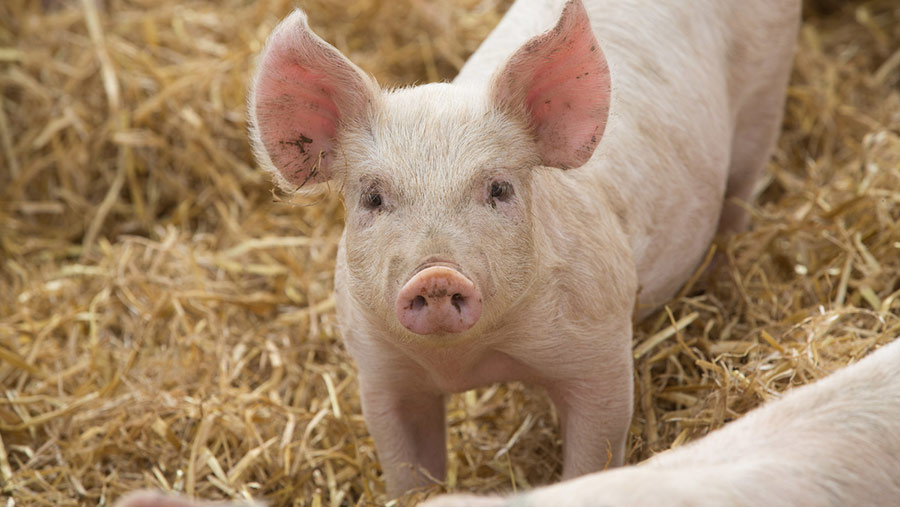New pig welfare code – what producers need to know
 © Tim Scrivener
© Tim Scrivener Defra has updated its code of practice for the welfare of pigs, which includes revised guidance on issues such as enrichment, tail docking and record keeping.
The code is the practical interpretation of welfare law and underpins Red Tractor assurance standards. It can also be used by enforcement bodies when investigating allegations of poor welfare.
The code was updated with input from the National Pig Association (NPA), the Pig Veterinary Society and welfare groups.
See also: Red Tractor announces tougher dairy farm standards
NPA chief executive Zoe Davies said changes should not be too onerous for the vast majority of pig owners. However, she stressed the importance of the document and urged pig producers to ensure they read it carefully.
The NPA also outlined the key areas within the code and provided further advice to producers.
Tail docking
Routine tail docking is not permitted. Any docking must only be used as a last resort, once it has been shown that environment and management changes have failed to prevent tail biting.
The NPA warned producers to start recording what they had done to prevent and control tail biting to justify any continuation of docking.
If inspectors find pigs that have been docked without supporting evidence, producers will be penalised through Basic Payment Scheme deductions or court action.
Enrichment
All pigs must have permanent access to enrichment materials that stimulate investigation, manipulation and foraging activities.
These must be safe, hygienic and should ideally be edible, chewable, investigable and manipulable – so that pigs can change their location, appearance or structure.
Farrowing
Defra has set out its intention to phase out farrowing crates within the document, but there is, as yet, no timescale for this to happen, the NPA said. Farrowing crates must continue to allow the sow enough space and provide her with sufficient room to rise and lie down without difficulty.
There must also be easy access in an emergency. All producers will be expected to provide enrichment in farrowing crates.
In addition, nesting material should be provided, wherever possible, to minimise sow stress, particularly in the 24 hours prior to farrowing. The law states that nesting material is required unless the slurry system cannot support it.
The NPA said it would encourage all producers to provide some material for the sow before farrowing. This could be straw, shavings or shredded paper.
Lighting
One of the few completely new requirements is on recording lighting. Farmers should routinely check light levels are appropriate and keep records of levels in pens at all stages of rearing and farrowing.
Lighting itself should be regularly checked, maintained and cleaned.
Health and welfare plan
Farmers should draw up and implement a written pig health and welfare plan with a veterinary surgeon. The plan should set out health and husbandry activities that cover the production cycle and include measures to prevent and tackle disease.
It must also include contingencies to deal with emergencies, disease control restrictions and disruption to power, feed and water supplies.
In addition, the code states there must be a focus on disease prevention through appropriate biosecurity, hygiene and vaccination protocols agreed with a vet. Antimicrobials should not be used routinely, but only as advised by a vet.
Balcony systems for weaners
A new section is included in the code on requirements for balcony systems for weaners. It says that where part of the unobstructed area is on a different level, the design must provide:
- Suitable flooring for the age of pig
- A design that avoids dung and urine falling on pigs below
- Access for pigs to all areas
- Access for farmers to inspect pigs safely at all times and remove sick or injured pigs
Further information
The full document is available on Defra’s website in PDF format.
The updated code has been laid before parliament, where it will remain for a minimum of 40 days. Parliament must be sitting for a consecutive 40-day period before the code will be granted ministerial approval.
Because of the Brexit situation and the possibility of a general election, the code is not likely to become law until early next year. In the meantime, the NPA urged farmers to read the document and alert it to any concerns.
